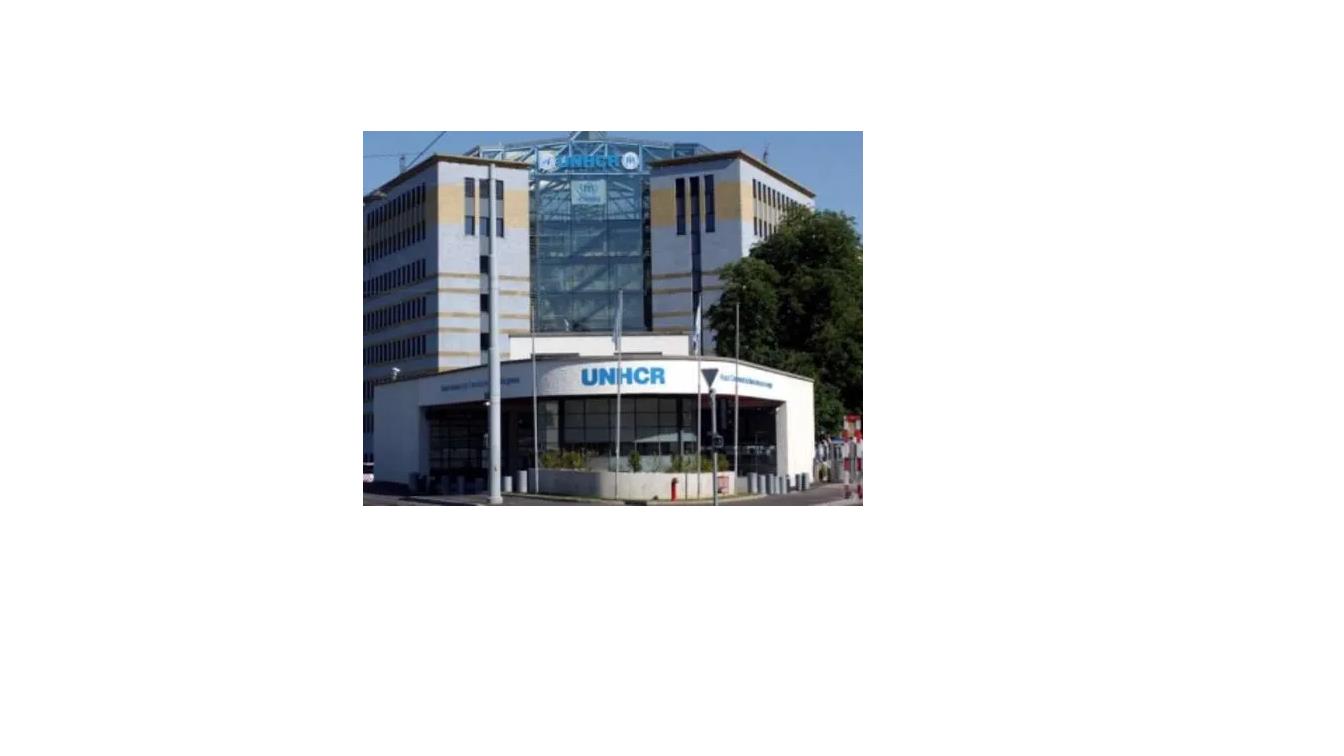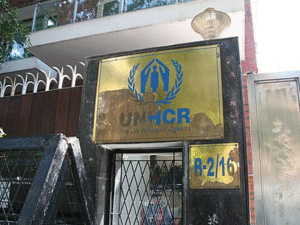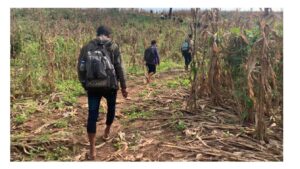By Shwe Ba (Pseudonym), Originally Published in Burma Digest, 2007
A New Approach for Myanmar Refugees and Migrants: A Pilot Project Proposal
By Shwe Ba (Pseudonym), Originally Published in Burma Digest, 2007
Introduction
The old proverb goes: “Give a man a fish, and you feed him for a day. Teach a man to fish, and you feed him for a lifetime.” But Myanmar refugees today neither need a fish nor a fishing lesson. They already know how to survive and work hard. What they lack—and desperately need—are legal documents that grant them the right to stay and work in their host countries.
When the war in Ukraine broke out, countries across Europe quickly welcomed millions of refugees with dignity and protection. In contrast, Myanmar’s displaced people—fleeing military coups, armed conflict, persecution, economic collapse, and natural disasters—have received little attention or support. Bureaucratic paralysis and funding shortages have left the UNHCR constrained and inactive.
This document, first written in 2007 and based on direct experience and compassionate realism, outlines a scalable pilot program that offers legal recognition, mobility, and livelihood opportunities to Myanmar refugees and migrants. It is more urgent and applicable today than ever.
Summary of the Proposal
We propose a Myanmar Refugee and Migrant Pilot Project under UNHCR oversight to provide legal status and structured work opportunities for displaced Myanmar nationals. The key components:
- UNHCR-Issued Certificates of Identity (CIs): Legal documents in place of passports, allowing lawful employment and international mobility.
- Vocational & Language Training: Skills training based on host country needs.
- Employment Facilitation: A UNHCR-coordinated system for vetting, job placement, and accountability.
- Global Partnerships: UN agencies, host countries, donor governments, and corporations collaborate to create migration pathways.
- Safety Nets & Oversight: Background checks, legal monitoring, and repatriation frameworks.
Why the Current Refugee System Falls Short
- Refugees wait years in limbo—without jobs, education, or stable housing.
- Host governments fear permanent settlement and social tension.
- UNHCR’s process is slow, limited, and often stalled.
- Rigid definitions of “political” vs “economic” migrants don’t reflect complex realities on the ground.
The result is frustration, exploitation, and loss of human potential.
Myanmar: A Complex Humanitarian Emergency
- Most neighboring countries are not signatories to the 1951 Refugee Convention.
- Decades of conflict, systemic racism, and religious persecution plague every corner of the country.
- Return is unsafe for most; reintegration is unrealistic without political change.
- Displacement numbers exceed a million across Malaysia, Thailand, Bangladesh, India, and elsewhere.
Pilot Project: Core Structure and Functions
- Certificates of Identity (CIs)
- Issued to Burmese/Myanmar refugees and undocumented migrants.
- Grant lawful identity, employment rights, and limited international travel.
- Training Hubs
- Skills training in trades, language, host country culture, and basic law.
- Funded through UNHCR, NGOs, or employer contracts.
- UNHCR Employment Agency
- Maintains job listings, verifies employers, monitors compliance.
- Maintains databases on worker history and blacklists violators.
- International Coordination
- UNHCR works with ILO, WTO, WHO, UNDP, UNICEF, World Bank, and Interpol.
- Employer nations negotiate labor quotas and legal pathways.
- Financial Sustainability
- Initial funding via donor contributions.
- Long-term sustainability through employer levies, income deductions, and voluntary refugee repayment once stable.
- Health, Education, and Welfare
- Partnership with insurers to offer social protections.
- Contributions deducted from income; governments may offer tax incentives.
- Security Framework
- Full background checks via host country police and Interpol.
- CI holders must agree to abstain from political violence and criminal conduct.
- Host Country Benefits
- Managed, vetted labor force.
- Less need for enforcement, detention, and ad hoc responses.
- Avoids burden of permanent settlement obligations.
- Third Country Flexibility
- Countries can offer temporary contracts without citizenship obligation.
- High-performing workers may earn residency or naturalization based on merit.
Common Concerns, Addressed
- Won’t this trigger mass migration? No—entry is controlled through contracts and quotas.
- Is it legalizing illegal migrants? No—it transitions them into regulated, monitored workers.
- What if it fails? It’s a pilot. If ineffective, it can be reviewed or discontinued.
Why Myanmar Needs This Now
- Return is unrealistic in the near term due to military rule, civil conflict, and economic collapse.
- Most host countries are under pressure and have halted UNHCR registrations.
- Without legal status, Myanmar refugees face detention, exploitation, and hopelessness.
- Many are already skilled workers or professionals ready to contribute.
Global Precedents and Lessons
- EU responses to Ukrainian refugees prove that fast-track legal status and work access are possible with political will.
- ASEAN countries already host millions of Burmese nationals—often undocumented and in limbo.
- Legal empowerment is more sustainable than indefinite aid or encampment.
A Win for All
- Refugees gain dignity, income, and the ability to help families still inside Myanmar.
- Host Countries benefit from reliable labor without political controversy.
- Third Countries gain vetted, experienced workers under flexible terms.
- UNHCR and Donors see long-term solutions that scale beyond Myanmar.
Conclusion: Give Them a Chance, Not Just Shelter
Myanmar’s refugees are not asking for charity. They ask for an identity card, the right to work, and the chance to rebuild lives.
Let the junta remain in isolation. Let the people move forward.
UNHCR and the international community—replace red tape with results. Replace sympathy with solutions.
Empower Myanmar’s people to rise above disaster. This pilot project could be the model that changes how the world responds to displacement, one identity card at a time.
Myanmar’s displaced people don’t want charity. They want a chance to rebuild their lives and help their families. Legal documents and the right to work will empower them to contribute—not just to host countries, but to Myanmar’s eventual recovery.
Let the military regime remain isolated. Let the people move forward. If implemented, this proposal could become a model for refugee solutions worldwide.
UNHCR and the global community: please offer dignity, not detention. Offer opportunity, not handouts. Empower, don’t just shelter.
READ ALSO:
1/ Myanmar Refugee/Migrant pilot Project Proposal I
2/ Myanmar Refugee/Migrant pilot Project Proposal II
3/ My Youtube videos in Myanmar:
https://www.youtube.com/watch?v=I6ohnO_8q5Q&pp=2AaCFA%3D%3D
https://www.youtube.com/watch?v=tDxf2gHdkKY
https://www.youtube.com/watch?v=LpzyzD84Gm4
https://www.youtube.com/watch?v=EdRoGWxXnNY
https://www.youtube.com/watch?v=EdRoGWxXnNY
https://www.youtube.com/watch?v=-o8asdM8CWo&pp=2AYD0gcJCcEJAYcqIYzv






